Oil price posts two-year highs - but how long can it last?
Brent rose above $59 a barrel this week, its best third-quarter showing since 2004

A free daily email with the biggest news stories of the day – and the best features from TheWeek.com
You are now subscribed
Your newsletter sign-up was successful
Low oil price makes North Sea a drain for first time
3 July
A depressed oil price is taking a toll on the UK public finances and has rendered the North Sea offshore oil and gas sector unprofitable for the country for the first time in its history.
The industry received a net £312m in tax rebates for the financial year to the end of March, according to official data. As recently as 2011/2012, it had contributed £10.9bn to the Treasury in tax.
The Week
Escape your echo chamber. Get the facts behind the news, plus analysis from multiple perspectives.

Sign up for The Week's Free Newsletters
From our morning news briefing to a weekly Good News Newsletter, get the best of The Week delivered directly to your inbox.
From our morning news briefing to a weekly Good News Newsletter, get the best of The Week delivered directly to your inbox.
"Figures published a year ago had suggested that tax revenues dipped into the red in 2015/2016," says The Times, "but HMRC has since revised its estimates, making 2016/2017 the first year of negative revenue."
The figures are a blow to the government, which based its economic projections on Office for Budget Responsibility forecasts predicting a net tax-take of £100m last year.
Since peaking in 2011/2012, tax revenues from oil and gas have been in decline as a result of ongoing decommissioning and cleaning up of old oil fields, for which rebates of up to 50 per cent are offered.
The decline accelerated rapidly in late 2014, when oil prices more than halved from well above $100 a barrel. They have not recovered since, despite picking up markedly late last year following a deal to cut production by Opec and other major suppliers including Russia.
A free daily email with the biggest news stories of the day – and the best features from TheWeek.com
Prices last week saw their first gain for six weeks in what has now become an eight-session rally - the longest for five years - on the back of a modest decline in US output. Nevertheless, trading is down 14 per cent for this year.
Brent crude, the international benchmark, was up 0.8 per cent earlier today to $49.20 a barrel after falling as low as $45 in the past two weeks. Its US counterpart West Texas Intermediate was up one per cent at $46.50.
Gains are tempered by worries over global supplies, especially as oil output from Opec unexpectedly rose by 280,000 barrels in June, says Reuters.
"To put that in context, that is nearly a quarter of the 1.2 million barrels [per day] Opec agreed to cut," said Greg McKenna, chief market strategist at AxiTrader.
Oil price slowly recovers from ten-month low
29 June
Oil is continuing to endure volatile trading amid conflicting trends and data on global supply.
Both the main benchmarks have risen for six consecutive trading sessions, marking the longest bull run since April, says Reuters.
Brent crude was up 0.8 per cent for the day at $47.69 a barrel, having earlier hit a peak of around $48.20. Last week, it fell significantly below $45.
Its US counterpart, West Texas Intermediate, was up by around 0.8 per cent at $45.10.
Last week, the oil price crashed to a ten-month low and into official "bear market" territory, prompting analysts to warn trying to time the bottom of the market was like trying to "catch a falling knife".
Triggering the latest rise was yesterday's news from the US regulator the Energy Information Administration that crude stocks rose by 100,000 barrels last week.
More crucially, the report revealed that after months of consecutive increases, US domestic oil production declined by around 100,000 barrels.
Prices have been dragged down by rising shale oil production in the country, coupled with a general supply overhang around the world following a two-year output glut.
Even the extension of cuts from Opec, Russia and other oil-producing nations has failed to calm nerves and statistical evidence suggests it has done little to reduce actual oil exports.
Analysts at Commerzbank told Reuters production outages due to Tropical Storm Cindy in the Gulf of Mexico and maintenance in Alaska were responsible for last week's production dip in the US.
"It is thus doubtful whether (the) price rise will really prove lasting," they said.
Goldman Sachs also kept a bearish stance, saying today it has downgraded its forecast for the oil price in the months ahead.
It said: "We expect this will leave prices trading near $45 until there is evidence of a decline in the U.S. horizontal oil rig count, sustained stock draws or additional OPEC production cuts."
Oil price nears seven-month low despite big US reserves drop
22 June
The oil price is hovering near seven-month lows and remains close to being in a "bear market", despite a big fall in reported US oil reserves.
Brent crude, the international oil price benchmark, fell below $46 a barrel yesterday after peaking earlier this year at $56 a barrel. Earlier today, it hit an intraday low below $45, marking a peak-to-trough fall of more than 20 per cent to meet the definition of a bear market.
Its US counterpart, West Texas Intermediate, has fallen from a low earlier this year above $54 a barrel and it was at the time of writing trading below $43.
Yesterday afternoon, the Energy Information Administration, the US regulator, reported the country's stockpile of crude oil fell last week, its tenth decline in the past 11 weeks. It dropped 2.5 million barrels, says Reuters, above analysts' expectations of 2.1 million.
However, US reserves data is no longer moving the market. Morgan Stanley says global inventories across the OECD, China and various other countries rose by a million barrels in the first quarter.
Moreover, despite pledges from the likes of Opec and Russia to cut out by 1.8 million barrels a day until next March, production is rising in the US as well as some Opec countries exempt from the agreement.
"Nigeria's crude oil exports are set to exceed 2 million barrels per day in August, the highest level planned for 17 months," says Reuters.
Michael Burns, oil and gas partner at law firm Ashurst, said: "This is a pretty concerning time for a lot of producers.
"The question is whether Opec will respond with further cuts or whether it needs to look again at its macro strategy for addressing low prices."
Oil price is 'like a falling knife right now'
21 June
Oil prices fell back into "bear market" territory yesterday and have failed to respond meaningfully to further evidence that US oil reserves are in steady decline.
Traders are reticent to buy back into the commodity when it is "like catching a falling knife", Amrita Sen, of Energy Aspect, told CNBC.
It is a phrase used by traders and experts to refer to situations when a market is in sharp decline and it has become hard to recognise when it has hit a floor, meaning a move to buy back in is likely to result in further pain and losses.
Sen added: "I genuinely haven't seen sentiment this bad ever."
Oil had actually risen markedly after producers including Opec and Russia announced a deal to cut 1.8 million barrels a day from global supplies last November.
International oil price benchmark Brent crude hit a high of more than $56 barrel this year, but yesterday fell to a seven-month low below $46.
Its US counterpart West Texas Intermediate was yesterday at around $43.25 after touching $54.45 this year, says USA Today. That's a peak-to-trough drop of more than 20 per cent, marking a fall into bear market territory.
Trading is being hit by a massive supply overhang and evidence that global supplies still exceed demand, keeping prices under pressure.
While private sector data published yesterday showed US crude reserves fell by 2.7 million barrels last year - which, if confirmed by US regulatory figures today, would mark the tenth fall in 11 weeks - the oil price is unmoved.
In addition, while the Opec deal has been extended, Nigeria and Libya, both exempt from the deal, are increasing production and exports have fallen less than headline output cuts suggest.
US shale oil output is also rising, with new drilling wells rising for 22 consecutive weeks.
"The future might be bright for oil prices but the present is not," said Tamas Varga at London-based broker PVM.
US oil price 'most definitely' heading to $40 a barrel
20 June
The oil price has taken another negative turn, plunging to its lowest level in seven months on signs the market remains in the grip of a global supply glut.
US benchmark West Texas Intermediate was 2.8 per cent down at less than $43 a barrel at time of writing. Brent crude, the international oil price benchmark, was down 2.6 per cent at $45.70 a barrel.
Forecasts for the future are also dire. John Kilduff, founding partner at energy hedge fund Again Capital, told CNBC that oil was "most definitely" heading to $40 a barrel in the near future and will likely dip into the upper $30s.
The story is not much changed from late last week, when prices dropped sharply: traders are responding to news of rising output from key producers and signs of global oil reserves continuing to grow.
Specifically today came the news that production will be up more than 110,000 barrels per day by August in Nigeria and Libya, both of which are exempt from Opec supply cuts.
Exports from Iraq are also said to be increasing, while shipments in general across Opec are thought to have fallen only marginally, despite the 1.8 million barrels per day of cuts that will continue until next March.
Since that reductions deal was renewed in May, the oil price has fallen 15 per cent.
In addition, output is continuing to rise in the US - last Friday, an increase in active shale oil wells was reported for the 22nd consecutive week, says Business Insider.
Morgan Stanley has cited figures that show crude oil inventories rose across the Organisation for Economic Co-operation and Development (OECD), China and selected other non-OECD countries by about a million barrels in the first quarter of this year.
"Now we're in the process of the market playing chicken with Opec and non-Opec," Kilduff added. The producers are "going to have to react again in a significant way to get the price to stabilise and go back up."
-
 Why is the Trump administration talking about ‘Western civilization’?
Why is the Trump administration talking about ‘Western civilization’?Talking Points Rubio says Europe, US bonded by religion and ancestry
-
 Quentin Deranque: a student’s death energizes the French far right
Quentin Deranque: a student’s death energizes the French far rightIN THE SPOTLIGHT Reactions to the violent killing of an ultraconservative activist offer a glimpse at the culture wars roiling France ahead of next year’s elections
-
 Secured vs. unsecured loans: how do they differ and which is better?
Secured vs. unsecured loans: how do they differ and which is better?the explainer They are distinguished by the level of risk and the inclusion of collateral
-
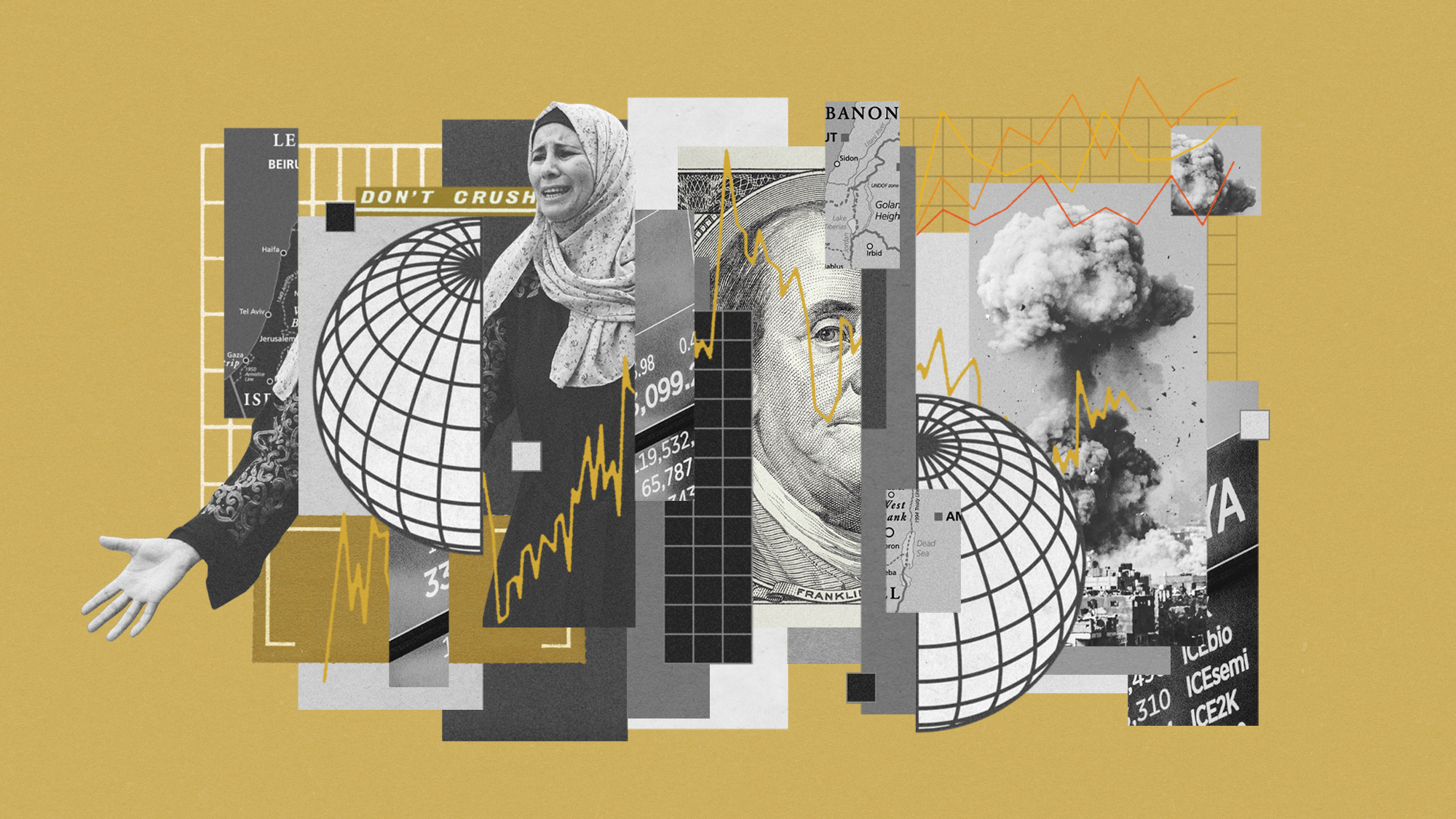 How might the Israel-Hamas war affect the global economy?
How might the Israel-Hamas war affect the global economy?Today's Big Question Regional escalation could send oil prices and inflation sky-high, sparking a worldwide recession
-
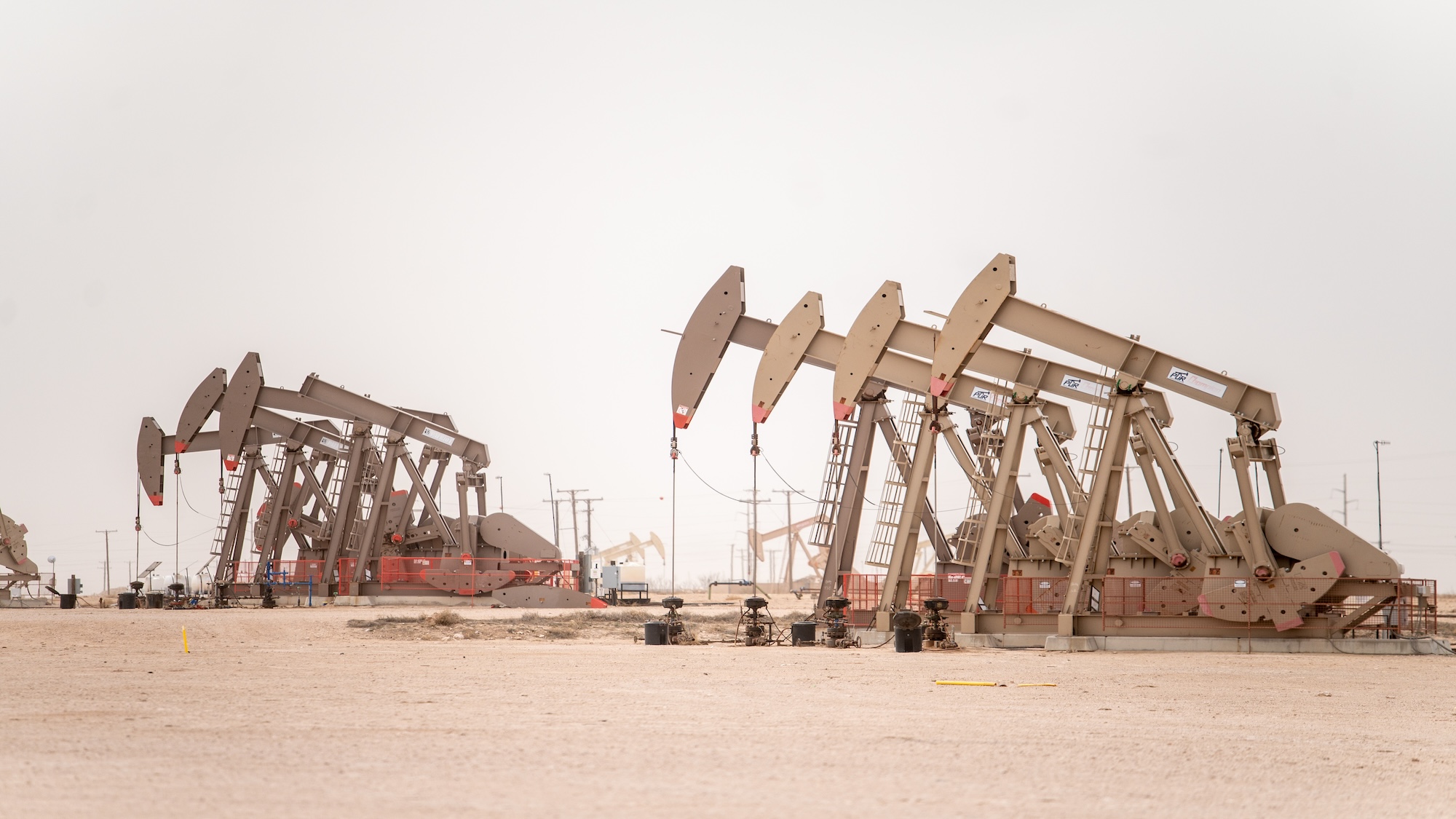 Recent mega-mergers could signal a turning point for the US oil industry
Recent mega-mergers could signal a turning point for the US oil industryTalking Point Both Chevron and Exxon have recently spent billions to acquire smaller oil companies
-
 Has Saudi Arabia lost control of oil prices?
Has Saudi Arabia lost control of oil prices?Today's Big Question Kingdom goes it alone to cut production, risking tension with US and reigniting cooling inflation in Europe
-
 US angered by Opec+ oil cut
US angered by Opec+ oil cutSpeed Read Energy prices to rise further as producers slash supply by two million barrels a day
-
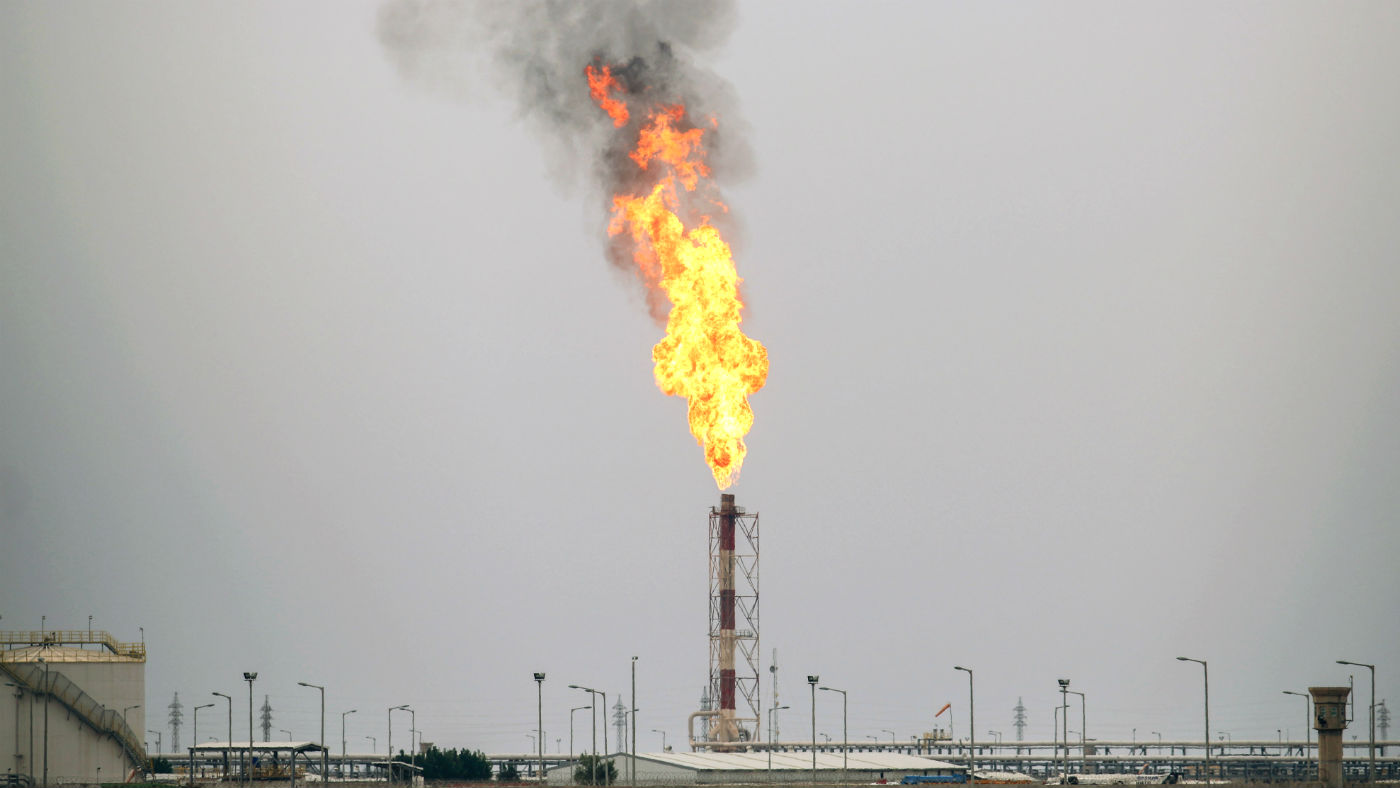 Global oil demand forecast lowered for 2020 and 2021
Global oil demand forecast lowered for 2020 and 2021Speed Read IEA report says jet fuel demand remains the major source of weakness
-
 Are US-Iran tensions flaring again?
Are US-Iran tensions flaring again?In Depth Trump threatens military action over Twitter
-
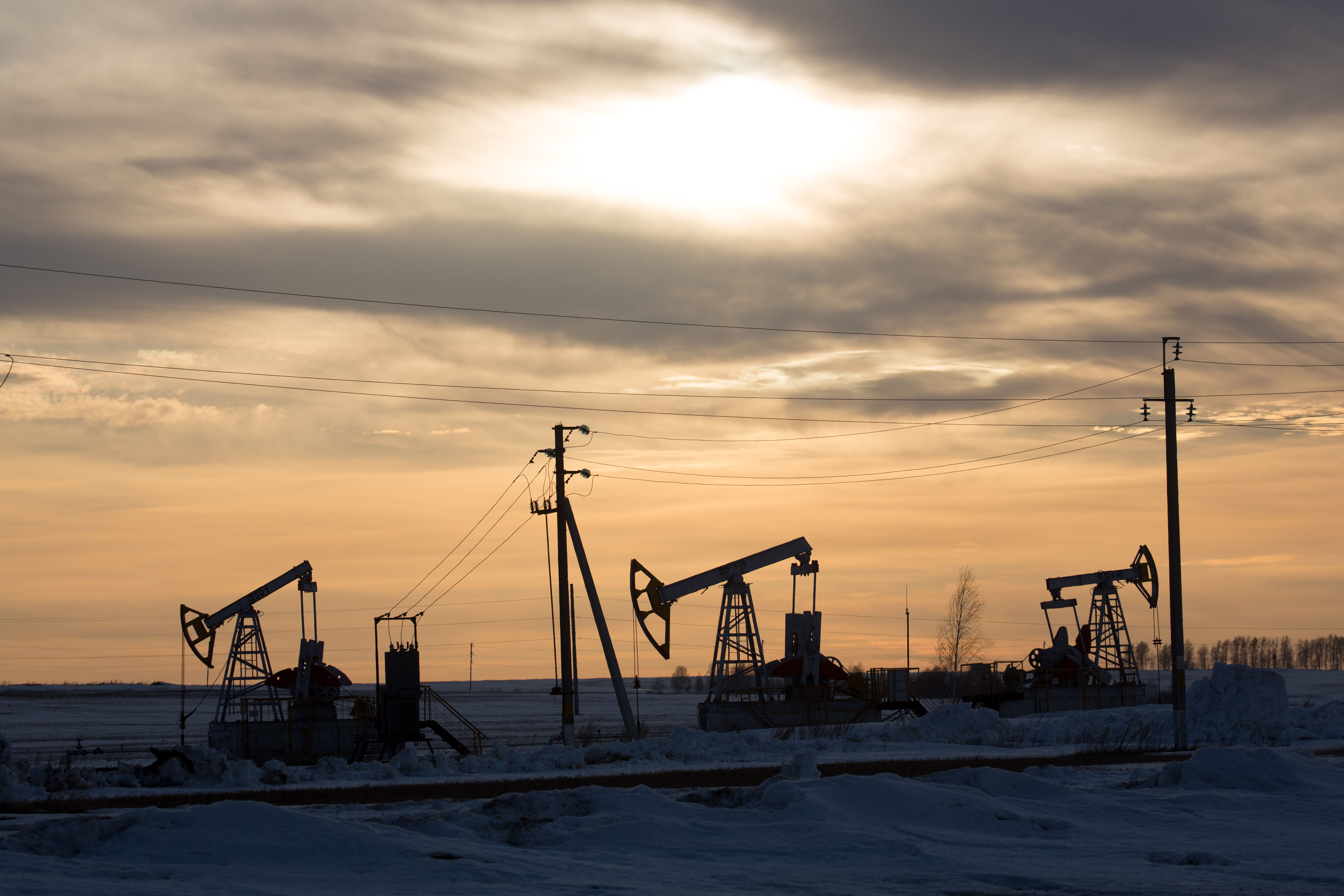 Can a deal be struck to raise oil prices?
Can a deal be struck to raise oil prices?In Depth Opec+ will convene today over video link in a bid to boost crude
-
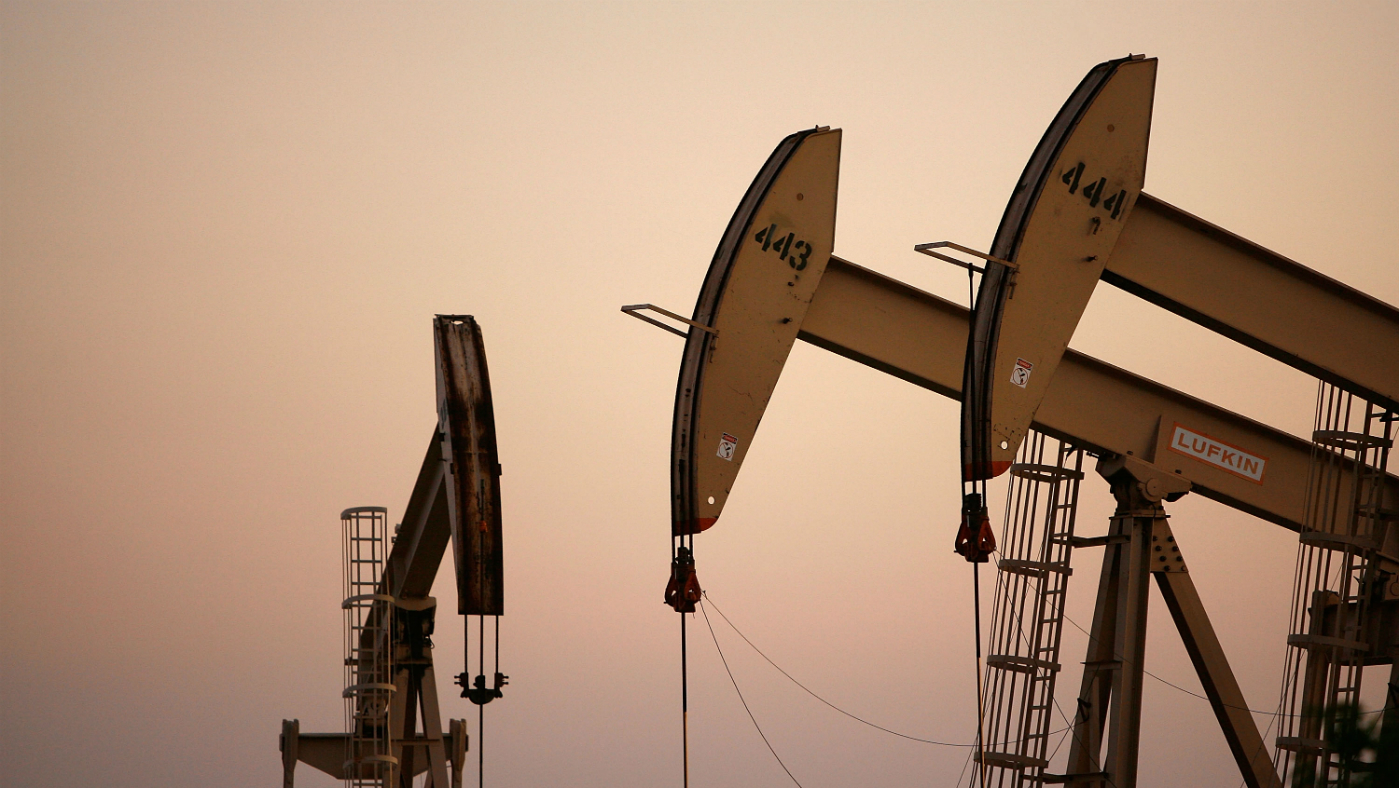 What do negative oil prices mean?
What do negative oil prices mean?In Depth Perfect storm of oversupply and storage shortages sees producers paying to get rid of US crude